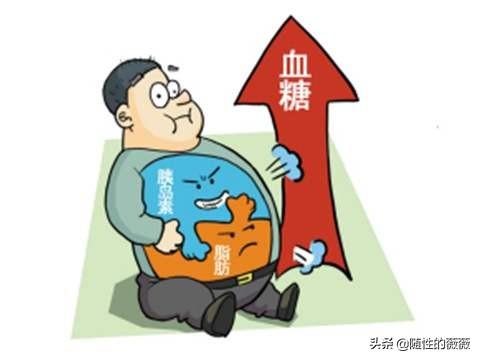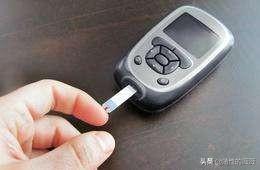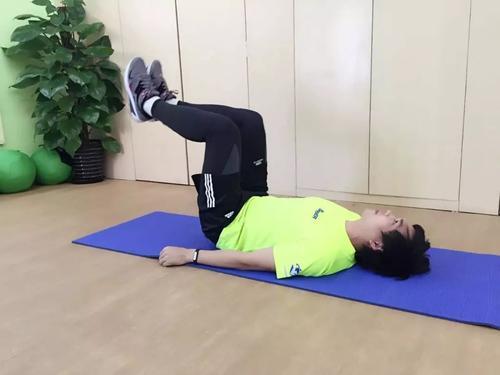Isn't having a hypoglycemic reaction bad for weight loss?
It is a consensus among many that obesity leads to diabetes.
Because it's not uncommon for one person to point at another in an outpatient clinic and say.
Look, he's so skinny, how could he get diabetes?
Oops, he's fat like that. He must have high blood sugar, high blood pressure and high blood fat!
Would you believe me if I told you that fat people are more prone to hypoglycemia?
It's true, obese people are more likely to experience hypoglycemia than normal people. This is of course because they are obese and have higher levels of insulin in their bodies than normal, and insulin lowers blood sugar, so there is a hypoglycemic response. And obese people not only insulin level is high, there will be a delay in insulin secretion, so that should be elevated in 10 minutes after the meal of early phase insulin secretion, to be delayed to 30 minutes, 2 hours will be able to play the maximum role of insulin level, to 3-4 hours before they start to play the maximum role, so that the next meal before the hypoglycemic situation.
This is the reason why obese people are more prone to hypoglycemia, and in order to avoid hypoglycemia, and to improve the symptoms and fear of hypoglycemia, obese people will be faster and more food intake, resulting in too many calories, it will be further obesity appears.
So the presence of low blood sugar is very detrimental to those who plan to lose weight, and those who plan to lose weight with recurring low blood sugar are sure to lose weight.
More importantly, obese patients are very prone to insulin resistance. Insulin resistance is the body is not sensitive to insulin, these insulin can not be effectively transported by glucose to the cells to be utilized by the body, so the body will secrete more insulin to reduce the gradual increase in blood glucose. So obese people will have hyperinsulinemic state in the body, and insulin can promote fat synthesis, which forms a vicious circle, obese people will become more and more fat, fat people insulin levels are getting higher and higher, and pancreatic function is finally overwhelmed, there will be a gradual decline, and diabetes will occur.
Weight loss in order to reduce weight, must reduce the amount of food and drink, increase the amount of exercise, is very easy to appear hypoglycemia. In order to avoid the emergence of hypoglycemia, it is necessary to determine the amount of daily diet on the basis of small meals, eat foods rich in dietary fiber such as vegetables, fruits, etc., drink more water, so that you can increase the sense of satiety, replenishment of water lost in the exercise, to dilute gastric juices, reduce the desire to eat, but also be able to reduce the emergence of hypoglycemia.
I'm Dr. Sun, follow Dr. Sun on Sugar, continue to learn more quality health knowledge, please leave a message below if you have any questions, will reply!
The first choice is to determine whether the hypoglycemic reaction is really hypoglycemic. Many people associate hypoglycemia with symptoms such as panic and sweating. In fact, hypoglycemia rarely occurs in the normal population, and a regulatory mechanism exists in normal people, so that when eating is reduced and the intake is insufficient, hormonal level adjustments will occur in the body, such as an increase in pancreatic glucagon and a decrease in the utilization of sugar. Therefore, unless it is a long-term severe dietary restriction will appear to regulate the imbalance. The appearance of the reaction of panic and sweating in many people is related to vagal excitation, and some people also experience fainting, which we call reflex syncope.
Secondly, weight loss is not simply a matter of starving out, if you often experience uncomfortable symptoms because you don't eat, it is recommended that you adjust your weight loss program, which is a warning from your body that this weight loss program has interfered with the normal metabolism of the body.
Finally, if you are not sure if you are really hypoglycemic, you can try to lie down and drink some water as soon as you have a hypoglycemic reaction (panic, sweating, pallor, nausea), it doesn't matter if you eat or don't eat, it generally works, and confirms that it has nothing to do with hypoglycemia.
It's well known that eating too much sugar is bad for your health. But glucose, the sugar in your blood, blood sugar is the number one source of energy for your body, and when your blood sugar gets too low, you're at risk for serious health complications.
The first physical symptom of hypoglycemia is hunger, and at first, if you don't eat for an extended period of time you will experience irritability and anxiety, blurred vision, headaches and dizziness, and increased heart rate. Sometimes, hypoglycemia can even occur during your sleep, causing nightmares and sweating.
Early signs of hypoglycemia may be:People with type 1 diabetes and type 2 diabetes are at greater risk for blood sugar fluctuations because their bodies either don't produce enough insulin to work properly. And insulin is a hormone that delivers glucose to cells and muscles for energy.
People with type 1 diabetes do not produce enough insulin, while people with type 2 diabetes still produce insulin but develop what is known as insulin resistance, where their cells become resistant to the hormone, resulting in a buildup of blood sugar, which is called hypoglycemia if and when it drops to 70 milligrams per deciliter or lower. If you don't have diabetes, your body can regulate your blood sugar levels very well, but if you do, it's important to choose foods that will bring your blood sugar levels back into a healthy range.
To keep your blood sugar levels stable over time, eat a balanced meal consisting of carbohydrates, lean protein, and healthy fats on a regular basis.
If you have high blood sugar, exercise workouts can lower it due to the fact that your body can absorb glucose from insulin more efficiently during and after exercise. The key is to exercise in the right amount and at the right intensity; exercising more vigorously than usual can bring your blood sugar levels down quickly and can last up to 24 hours.

Our body is like a machine that needs fuel in the form of food to function properly and sustain us. The brain needs the right amount of sugar to work properly. Once food is digested, it is broken down into sugar that is delivered to every cell to fuel our bodies. Depriving your body of the sugar it needs can damage your cells and lead to hypoglycemia.
Hypoglycemia is a state in which the stimulation of insulin is disrupted and sugar is not being fed to the cells at the rate it should be, which can lead to hypoglycemia and cause discomfort. However hypoglycemia can be controlled through diet and exercise. You need to choose a diet that will both help you lose weight and control your blood sugar levels.
You have to eat small amounts of food every now and then and should completely avoid sugary foods and drinks and refined carbohydrates, you need to choose foods with a glycemic index below 55 - 60 and a glycemic load below 12 - 15, opt for a diet that is high in fiber as fiber has a good effect on blood glucose levels and will help you cope with hypoglycemia better, and also high caffeine foods and drinks must be avoided. Since obesity can cause problems with the proper functioning of insulin, you must work on eliminating excess fat and losing weight.
Regular exercise can control hypoglycemia, while choosing a well-balanced and nutritious diet plays a key role in maintaining your body and normalizing your blood sugar levels.
Losing weight is healthy, and slow, steady, conscious weight loss through changes in nutrition and exercise is good for the heart, blood pressure, and cholesterol levels, in addition to reducing "insulin resistance," which makes muscle and fat tissues more sensitive to insulin levels circulating in the blood, and learning to better control blood sugar levels by preventing fluctuations in blood glucose. control blood sugar levels by preventing blood sugar fluctuations.
People with hypoglycemia may need to pay more attention to losing weight than normal people. First of all, people with low blood sugar need to make sure that their bodies are supplied with energy to avoid hypoglycemia. It is important to stay active and exercise. Hypoglycemic weight loss should not be blind. Of course, there is also this situation, that is, diabetic patients are very obese, hypoglycemia occurs in the process of hypoglycemic treatment, patients in this situation need to lose weight, but must be fully adjusted to the treatment program, correct hypoglycemia, and carry out under the condition of ensuring absolute safety, to avoid recurrent hypoglycemic episodes, which will cause damage to the body. If you want to lose weight in a healthy way, you can take the following measures: 1 Control calories to lose weight: control the total amount of food, each meal should be seven or eight minutes full especially dinner. Keep your weight within the ideal range. Overweight, obese patients should lose weight.2 Reduce fat and cholesterol: pay attention to the reasonable combination of meat and vegetables, you can choose fish, shrimp and tofu, etc., based on the resistance to fat excellent word protein.3 Vegetables and fruits health care: daily vegetable intake should be greater than 500 grams of fruits at least 2 kinds. Vegetables and fruits are rich in dietary fiber. 4 pay attention to cooking method: cooking should strive to light, the best use of stew and other methods. Avoid fried barbecue and other foods.
expert meeting
Well, if you have symptoms, then you need to stop and rest. It is recommended to arrange your diet properly, do not diet, eat more meals will be better, calculate your metabolism, how much you consume every day, and then evenly divided into each meal, it will be better, pay attention to replenishment of water when exercising, and those who are prone to hypoglycemia have to pay attention to the stabilization of blood glucose, and to keep the distribution of carbohydrates evenly. Losing weight is certainly not just about lowering carbs and increasing vegetables. Weight loss is about making sure your nutrition is balanced while lowering your energy to achieve healthy weight loss. This hypoglycemia, you should first ensure that the body's ability to supply, to avoid the occurrence of hypoglycemia, how to be active in the exercise, at the same time eat more vegetables and fruits, more exercise, this can play a very good weight loss effect.
It's common to experience hypoglycemia, so don't let that affect your confidence in losing weight.
People experience hypoglycemia considering that it is due to insufficient sugar intake, which is likely to cause hypoglycemia when they are hungry or when their body is not digesting and absorbing the sugar well. Some people want to lose weight, excessive dieting when losing weight, which can also cause hypoglycemia. Hypoglycemia may also be caused by pathological factors, such as severe diarrhea, renal diabetes and malignant tumors, all of which can cause low blood sugar.
So find the cause and treat it first!
If hypoglycemia occurs during exercise, it may be that the exercise is too intense, and this time you need to stop and rest immediately.Lay down on the floor and raise your legs in the air, a maneuver that will quickly ease your discomfort.
As shown in the figure (Put your feet up on a stool, on the wall, whatever.)

You can usually prepare a cup during exerciseglucose waterIt is also effective in relieving hypoglycemia by drinking it immediately after it occurs.
I hope that helps.
This question and answer are from the site users, does not represent the position of the site, such as infringement, please contact the administrator to delete.